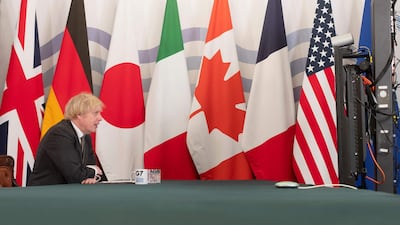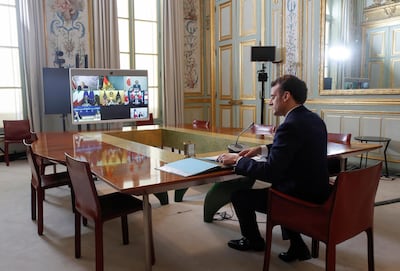During a meeting of the G7 on Friday, member states, particularly in Europe, may have turned the page on a short-lived but acrimonious chapter in their history.
If the tone was more constructive, so was the outcome of the meeting. The group's members have now pledged $4 billion in financial aid and millions of vaccines to developing countries.
This comes after a flare-up in spats over vaccine hoarding – nations like Canada have been singled out for securing enough doses to inoculate each citizen five times over – and a particularly hostile episode in recent weeks between the EU and Britain, with, among other arguments, France dangerously casting doubt over the efficacy and safety of Oxford's AstraZeneca jab.
For now, multilateralism at the G7 seems to be back on the cards, a good thing given the fact that the world has little time to waste.
Lockdown strategies around the world are focused increasingly on the danger posed by new coronavirus strains, particularly the worst-case scenario of a deadly vaccine-resistant mutation. It is difficult, at this stage, to avoid new strains emerging, but health systems can aim to control them to a greater degree with global inoculation.
Another policy idea gaining traction in Western nations is the potential implementation of vaccine passports. Any system that speeds up a return to international travel for business and leisure in a way that is effective and safe ought to be encouraged. However, if these documents become the norm, but global access to doses remains unequal, movement would become the reserve of those from the richest nations, a deeply problematic and regressive situation in globalisation.
Unfair distribution could also worsen economic inequality. It is estimated that some developing nations will not be able to reach sufficient levels of inoculation to safely open up their economies until as late as 2023 or 2024, years after countries that have the largest share of doses.
Scientists learn more each day about the many Covid-19 vaccines now on the market. Pfizer has recently announced that its jab can be stored at a higher temperature, reducing the need for expensive, specialist freezers. Increasing evidence suggests that both doses of the AstraZeneca vaccine can be spaced out for a longer duration than previously recommended. On a mass scale, findings such as these mean inoculation is easier than we first assumed. This unlocks a chance for governments with excess doses to donate globally, without jeopardising the pace of vaccinations at home.
A recent study has shown that more than 20.5 million years of life have been lost around the world since the Covid-19 outbreak began, a number to remind nations of the pressing need for action, not division. The signals coming out of G7 members are reassuring. If, at some point, they start to waver, they would do well to remember that spreading the vaccine is not a benevolent ambition, but a strategic priority.



